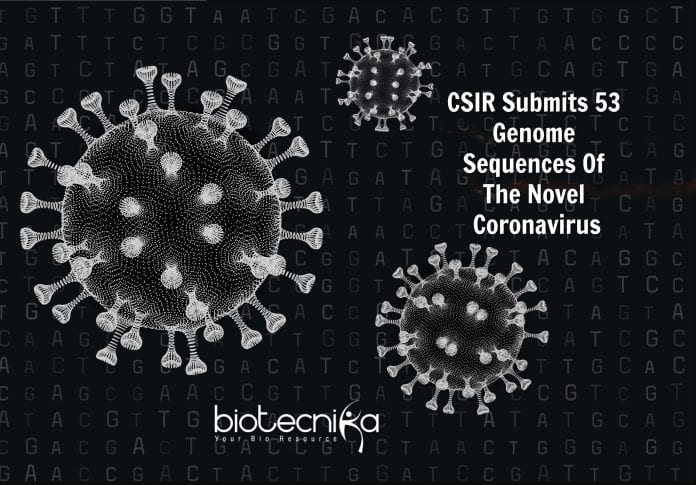India’s premier research institution, Council for Scientific and Industrial Research (CSIR), has submitted 53 genome sequences of the novel coronavirus to a global genome database amidst concerns that the virus has undergone mutations. This could help us understand more about the virus and develop a vaccine.
The institute is planning to submit an additional 450 genome sequence data by May 15, said its Director-General Shekhar Mande.
CSIR’s Centre for Cellular and Molecular Biology (CCMB), Hyderabad, Institute of Genomics and Integrative Biology (IGIB), Delhi, and Institute of Microbial Technology, Chandigarh is currently sequencing the genome of the virus. Many other CSIR institutes will join the mission soon.
Mr. Mande said that 53 genome sequences had been submitted to the Global Initiative on Sharing All Influenza Data (GISAID), and by May 15, 450 more sequences will be submitted.
Genome sequencing will assist scientists in understanding how genes work together to for the development, growth, and maintenance of an organism. Also, the origin of the virus could be understood from the sequence data.
For example, if a virus emerges from a particular cluster, sequencing will assist in identifying its origin later when it is found in some other part of the world.
Earlier
this week, a more contagious strain of coronavirus compared to the original strain was identified that has spread globally by a US-based science laboratory.Mande said the genome sequences submitted to the GISAID belongs to the coronaviruses isolated from COVID-19 patients in India.
GISAID is an organization that promotes the sharing of epidemiological, clinical, geographical, and species-specific data from all influenza viruses and the novel coronavirus. This data helps in studying how the virus spreads and evolves during pandemics or epidemics.
More than 16,000 genome sequences of the coronavirus have been shared with GISAD by various research institutes in the world. This will accelerate the studies on novel coronavirus SARS-CoV-2 and enable rapid progress in the research and development of medical countermeasures.
According to Sanjeev Khosla, Director, IMTech, sequencing will also help in the identification of new targets for drugs and the diagnosis of COVID-19.
Research institutes like the Gujarat Biotechnology Research Centre and the National Institute of Virology, Pune has also shared genome sequences with GISAID. But CSIR has submitted the highest number of genome sequences of coronavirus.






























